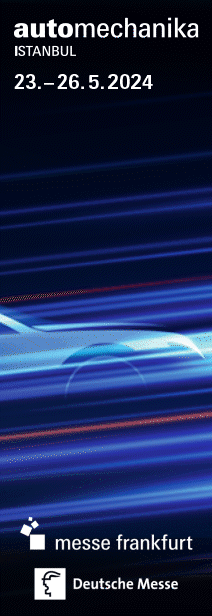The B2B marketplace, which will take place between 12-18 November within the scope of Agritechnica, the world’s leading agricultural machinery fair, will offer developers and design engineers an information and discussion platform about the latest developments and alternative fuels. There, visitors can see what the “ideal” drivetrain for a hydrogen-powered excavator or tractor might look like.
Modern hydrogen engines, such as those to be unveiled at Systems & Components in mid-November, are based on known and proven combustion technology adapted for a sustainable future. The advantages of this strategy are immediately apparent: a hydrogen combustion engine can be fitted to the same machine as a diesel engine using the same transmission, cooling system and hydraulic system. The motor can operate in dusty environments, withstand severe vibrations and is available in any size and configuration. For the transition to a hydrogen-powered drivetrain, vehicle manufacturers and fleet operators can stay in a familiar architecture where the piston engine is powered using hydrogen rather than diesel, gasoline or natural gas.

Proven basis, sustainable fuel
In contrast to the fuel cell, the hydrogen combustion engine is an inexpensive alternative that can be quickly implemented using the present manufacturing infrastructure, achieving zero carbon mobility in agriculture and construction. While its efficiency is lower than that of the fuel cell at low and medium loads, it is higher at full load. Because of this, experts, such as Dr Thomas Pauer, President of the Bosch Powertrain Solutions division, regard the hydrogen engine as a gateway technology for off-highway markets and an complement to fuel cell technology, which is rapidly reaching its limits in the heavy-duty and off-road sectors. “Construction machinery often operates at rest under high loads, which is precisely where the hydrogen engine stands out with its high efficiency and robustness,” emphasises Pauer. An example of this concept is the TCG 7.8 H2 from Deutz, a six-cylinder engine, based on an existing modular engine system and suitable for off-highway use. It emits no carbon and delivers an output of 220 kilowatts.
As well as its pilot application in a genset (a combined engine and generator) for producing electricity, the engine will be demonstrating its abilities in an 18-tonne truck, as part of of the HyCET project. Deutz is already planning to start mass production of the engine in 2024.
“The use of hydrogen can quickly make numerous heavy-duty and off-road applications climate-neutral,” confirms Dr Peter Wieske, Director Corporate Advanced Engineering at Mahle. Nevertheless, the prevention of engine knocking and premature ignition while maintaining the compression ratio, engine efficiency and output yield, is challenging. In this, the pre-chamber ignition, developed by Mahle Powertrain for Liebherr Machines Bulle, plays a crucial role. In order to achieve stable operation without knocking despite high compression, hydrogen engines must run with excess air, such that a conventional spark plug is incapable of igniting the mixture.

Pre-chamber technology for stable combustion
Mahle Jet Ignition (MJI) solves this problem by igniting a small quantity of a flammable mixture in a cylinder pre-chamber. The resulting gas plasma is routed through small openings into the main combustion chamber where, thanks to its high energy content, it quickly and uniformly ignites the main gas mixture. According to the company, tests with Liebherr’s H966 and H964 engines have shown outstanding results in terms of combustion speed, output and emissions.
The H966 is the core element of Liebherr’s new crawler excavator, the R9XX H2. This uses a hydrogen engine that was developed for field tests and is based on port fuel injection (PFI). The results achieved with this technology show the potential of the hydrogen drive for off-highway applications. Liebherr is also working on further hydrogen-based drive technologies such as H2 direct injection (DI). The latter promises a higher power density than H2 port fuel injection and is therefore suitable for demanding heavy-duty applications in the construction and mining industries. Bosch is also working on systems with port or direct fuel injection and is involved in more than 100 projects worldwide. As well as direct injection of hydrogen, the new AFI-LP injector (alternative fuel injector – low pressure) can also use other fuels such as methanol, thereby ensuring the greatest possible flexibility for engine manufacturers.








